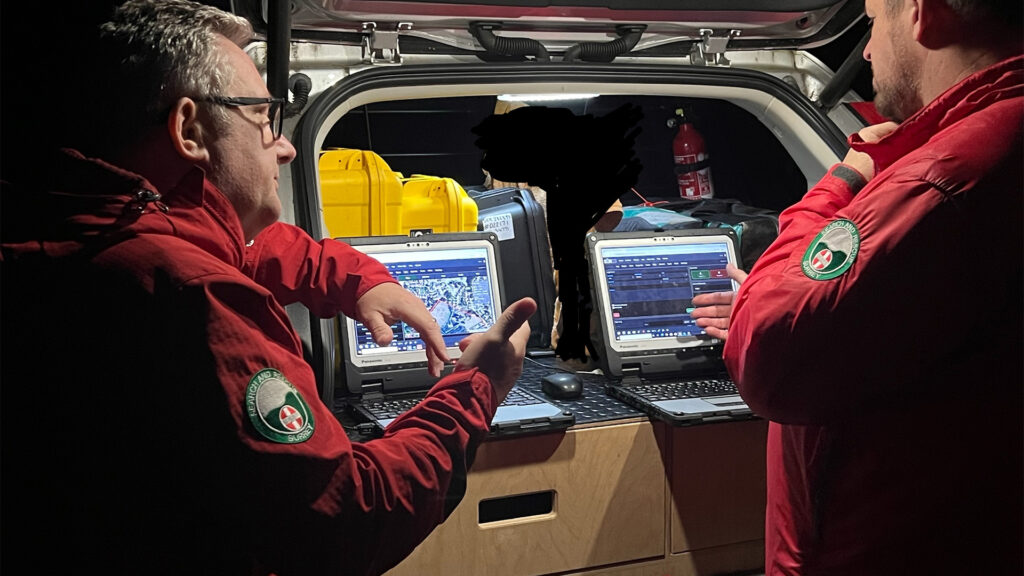
The movement of goods across borders has become a cornerstone of international commerce. As businesses strive to meet the ever-increasing demands of consumers, international shopping events, and seasonal surges, efficient and reliable transportation of goods has never been more crucial.
One technology which has been an unsung hero of the transportation industry for a long time is the tracking technology. This simple but sophisticated technology emerged as an indispensable tool for managing and optimising global and international shipping across sea, air, and road freight.
In this article, we will explore the vital role played by tracking technologies in each of these freight domains and underscore their importance in today’s globalised economy with insight from pallet delivery experts, Pallet2Ship.
Sea Freight: Navigating Vast Oceans with Precision
Sea freight is a key backbone of international shipping. The vastness of the world’s oceans presents unique challenges, making tracking technologies an essential component of maritime logistics. Here’s how tracking enhances both the visibility and efficiency of sea freight:
- Real-time Visibility: Tracking technologies enable real-time visibility into the location and status of cargo containers. This visibility helps shippers and logistics providers monitor the progress of shipments, predict arrival times, and make timely decisions to avoid delays or disruptions.
- Security and Safety: Ensuring the safety and security of cargo at sea is paramount. Tracking technologies, such as GPS and RFID systems, help track containers and vessels, reducing the risk of theft, piracy, and accidents. These technologies also aid in disaster response by providing accurate location data in emergency situations.
- Efficiency and Optimization: The efficient use of resources is critical in sea freight. Tracking technologies assist in optimising routes, managing inventory, and minimising idle time at ports. This leads to cost savings and reduced environmental impact through reduced fuel consumption.
- Regulatory Compliance: International shipping involves compliance with various regulations and customs procedures. Tracking technologies help automate documentation and reporting, ensuring that shipments comply with international laws and regulations, and reducing the risk of delays or fines.
Air Freight: Speed and Precision in the Skies
Air freight offers unparalleled speed and efficiency, making it indispensable for transporting high-value or time-sensitive goods. Tracking technologies in the realm of air freight play a vital role in maintaining this efficiency.
- Time-sensitive Operations: Time is of the essence in air freight. Tracking technologies provide real-time updates on the location, allowing for rapid response to any issues that could jeopardise the cargo’s integrity or delivery schedule.
- Asset Management: Airlines and logistics providers invest heavily in assets such as aircraft, ground handling equipment, and cargo facilities. Tracking technologies help optimise asset utilisation, schedule maintenance proactively, and ensure that critical components are in the right place at the right time.
- Global Connectivity: Air freight operates in a global network of airports and hubs. Tracking technologies enable seamless coordination between these hubs, helping goods transfer smoothly between flights and reach their final destinations with minimal delays and smooth handovers.
- Customs and Compliance: Like sea freight, air freight is subject to customs regulations and security requirements. Tracking technologies assist in automating customs processes, ensuring compliance with international trade laws, and expediting the flow of goods through airports.
Road Freight: Delivering Goods Locally and Across Borders
Road freight, often the final link in the supply chain, is crucial for the last-mile delivery of goods. Tracking technologies in road freight have revolutionised the way goods are transported over land.
- Route Optimization: Road networks are complex and subject to traffic, weather, and road conditions. Tracking technologies, including GPS and traffic data integration, help drivers and logistics providers choose the most efficient routes, reducing delivery times and fuel consumption.
- Delivery Accuracy: Real-time tracking enhances delivery accuracy by providing customers with precise delivery windows and notifications. This level of transparency builds trust and customer satisfaction, a critical factor in the competitive world of logistics.
- Fleet Management: For logistics companies, managing a fleet of vehicles is a significant challenge. Tracking technologies provide insights into vehicle performance, maintenance needs, and driver behaviour, leading to cost savings and improved safety.
- Cross-border Operations: In international road freight, tracking technologies are vital for ensuring compliance with customs regulations at border crossings. These technologies streamline documentation, reduce wait times, and facilitate the smooth movement of goods between countries.
Tracking technologies have transformed the landscape of global and international shipping, making it more efficient, secure, and responsive to the demands of a rapidly changing world. In sea freight, they provide a lifeline for managing the vastness of the oceans, ensuring cargo safety, optimising routes, and streamlining regulatory compliance. In air freight, they enable the speed and precision required for time-sensitive shipments, connecting global networks and supporting asset management. In road freight, they empower last-mile delivery, improve route planning, enhance delivery accuracy, and facilitate cross-border operations.
As we progress through the era of globalisation and digitalisation, the importance of tracking technologies in shipping is sure to grow and develop even further. Embracing these technologies will be essential for businesses and logistics providers seeking to stay competitive, meet customer expectations, and navigate the complex web of global and international shipping with confidence.




























